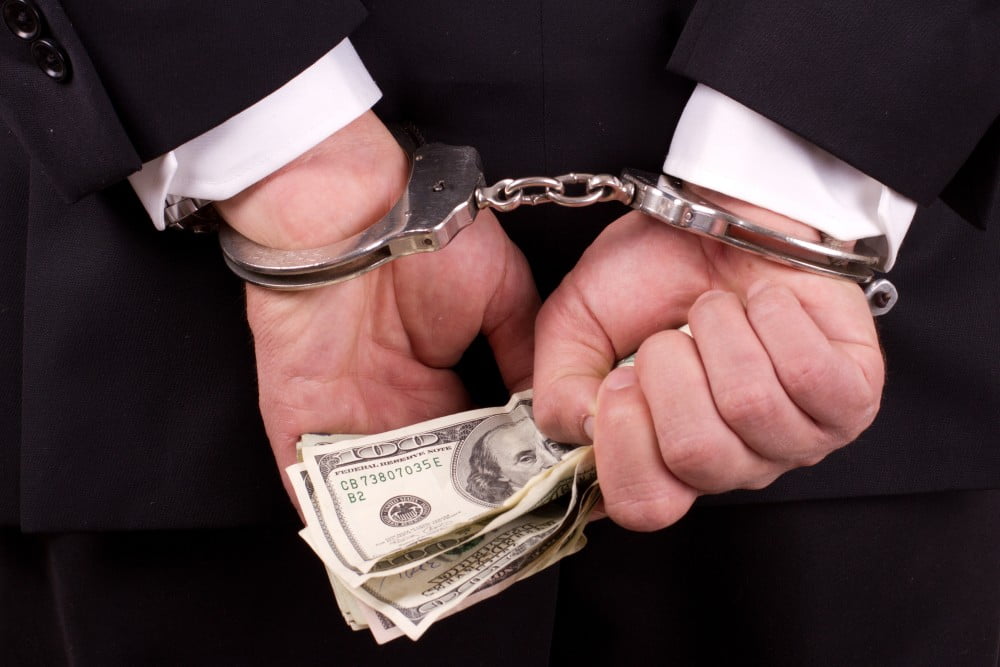If you have been charged with a white-collar crime in South Carolina, or if you think you are under investigation, talk to a white-collar criminal defense lawyer immediately – before you talk to police or your employer.
Your attorney might be able to:
- Talk to investigators on your behalf,
- Investigate the claims and present proof to investigators that you should not be charged,
- Shut down the case before you are charged,
- Arrange for you to turn yourself in if the police charge you and represent you at a bond hearing,
- Get your case dismissed, get your case into a pretrial diversion program, or try your case to a jury to prove your innocence.
What is White Collar Crime?
“White-collar crime” is not an official type of crime that is defined in federal or South Carolina laws, but it is a term used informally to describe certain types of crimes – typically nonviolent crimes that are committed in commercial situations for financial gain.
Although every person who is accused of “white-collar crime” is not a business executive working in a skyscraper downtown, the term comes from the stereotypical image of a Wall Street executive wearing a clean, starched, white-collared shirt.
Despite this stereotype, anyone can be charged with a white-collar crime like fraud, tax evasion, forgery, or breach of trust with fraudulent intent.
Examples of White Collar Crime in South Carolina
Any crime that involves financial transactions, financial gain, or political corruption could be labeled as a “white-collar crime.” Below, we will look at just a few of the more common white-collar criminal charges in South Carolina, focusing on state-court offenses.
Fraud
“Fraud” includes a broad category of criminal offenses in state and federal court that are considered white-collar crimes. What they all have in common is a person taking money or property from someone else through dishonest means.
For example, in state court, a person could be charged with:
- Check fraud,
- Credit card fraud,
- Breach of trust with fraudulent intent, or
- Obtaining property by false pretenses.
In federal court, “white collar crimes” would include:
- Securities fraud,
- Wire fraud,
- Mail fraud, or
- Money laundering.
Check Fraud, Forgery, Identity Theft
If you write a check for payment and there are insufficient funds in your account to cover the check, you could be charged with check fraud in South Carolina.
If you use someone else’s check, sign someone else’s name on the check, or even just present a forged check for payment, you could also be charged with forgery and/or identity theft.
Credit Card Fraud and Identity Theft
Financial identity fraud is when a person takes someone else’s property using personal identifying information like:
- Credit card numbers,
- Bank account numbers,
- Social security number,
- Date of birth,
- Personal identification number (PIN), or
- Driver’s license number.
There is some overlap between identity fraud and credit card fraud. For example, you could be charged with creating fake credit cards to use to defraud businesses, or you could be charged with stealing someone else’s credit card and then using it to withdraw funds or pay for goods or services.
Tax Evasion
If you willfully avoid paying your taxes, or help someone else to avoid paying their taxes, you could be charged with tax evasion in federal court, state court, or both.
Forgery
Forgery charges in South Carolina cover much more than just forged checks – you could be charged with forgery if you:
- Forge any “writing or instrument of writing,” which could include any type of document whether or not it has financial value,
- “Utter or publish as true” any forged document, or
- Assist someone else with a forgery with the intent to defraud a person.
While forgery charges include situations where a person has created a fake check, signed someone else’s check, or signed a false application to get a credit card in someone else’s name, it can also include other situations where money is not even involved, like forging a fake diploma, a document confirming that you performed community service hours for the probation department, or drug test results.
Embezzlement/Breach of Trust
There are two types of embezzlement charges under South Carolina law – embezzlement of public funds and breach of trust with fraudulent intent.
If “an officer or other person charged with the safekeeping, transfer, and disbursement of public funds” embezzles those funds, they can be charged with embezzlement of public funds under South Carolina Code § 16-13-210.
If any person takes money that was entrusted to them in a fiduciary relationship and converts it to their own use with fraudulent intent, they can be charged with breach of trust with fraudulent intent under South Carolina Code § 16-13-230.
Breach of trust could include situations where an employee takes money from the cash register, a contractor takes money for work that they never intended to do, or a person abuses a power of attorney for personal gain.
It can also involve situations where someone is attempting to bypass the civil process of filing a lawsuit, abusing the criminal process by having someone arrested just because they owe money…
Money Laundering
When a person conducts financial transactions with the proceeds from unlawful activity with the intent of promoting the unlawful activity or concealing the proceeds from the unlawful activity, they can be charged with money laundering in South Carolina state court or federal court (or both).
Questions About White Collar Crime in South Carolina?
If you have been charged with a white collar crime in South Carolina, get an experienced criminal defense lawyer in Moncks Corner on your side immediately who can begin preparing your defense.
Call 843-761-3840 or use this form to contact us today to discuss your case and start working towards the best possible outcome for you.
Ready To Speak With An Attorney?
Let’s discuss the details of your case and see if we can help.

